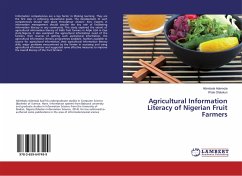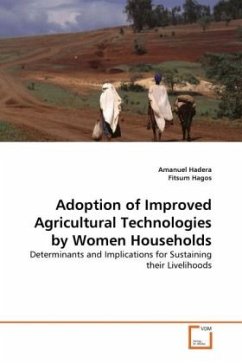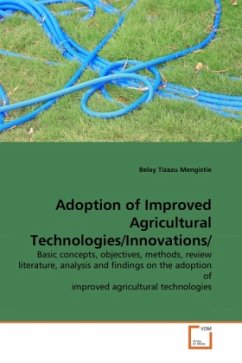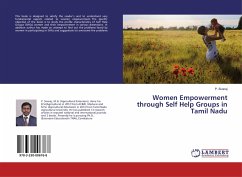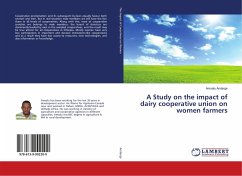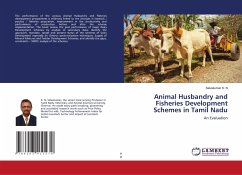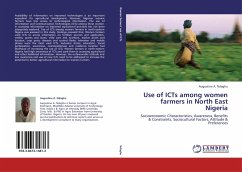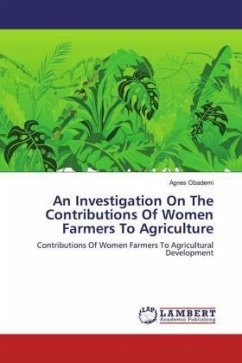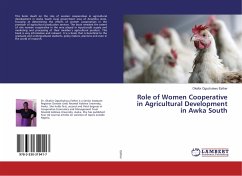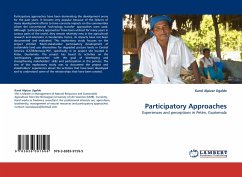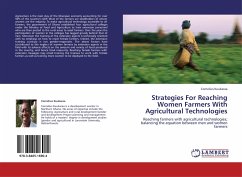
Strategies For Reaching Women Farmers With Agricultural Technologies
Reaching farmers with agricultural technologies; balancing the equation between men and women farmers
Versandkostenfrei!
Versandfertig in 6-10 Tagen
32,99 €
inkl. MwSt.

PAYBACK Punkte
16 °P sammeln!
Agriculture is the main stay of the Ghanaian economy accounting for over 50% of the country s GDP. Most of the farmers are smallholders of whom women are the majority. To make agricultural technology accessible to all farmers, the government of Ghana established four agricultural colleges under the Ministry of Food and Agriculture to train extension personnel who are then posted to the rural areas to assist farmers. Over the years the participation of women in the colleges has lagged grossly behind that of men. Moreover the training of the extension agents is technically oriented with no empha...
Agriculture is the main stay of the Ghanaian economy accounting for over 50% of the country s GDP. Most of the farmers are smallholders of whom women are the majority. To make agricultural technology accessible to all farmers, the government of Ghana established four agricultural colleges under the Ministry of Food and Agriculture to train extension personnel who are then posted to the rural areas to assist farmers. Over the years the participation of women in the colleges has lagged grossly behind that of men. Moreover the training of the extension agents is technically oriented with no emphasis on how to reach female farmers. Indeed, the extension training curricula is not gender-responsive. The above factors have contributed to the neglect of women farmers by extension agents in the field with its adverse effects on the amount and variety of food produced in the country, and hence food insecurity. Reaching female farmers with extension messages may entail training the traineesto work with female farmers as well as training more women to be deployed to the field.



